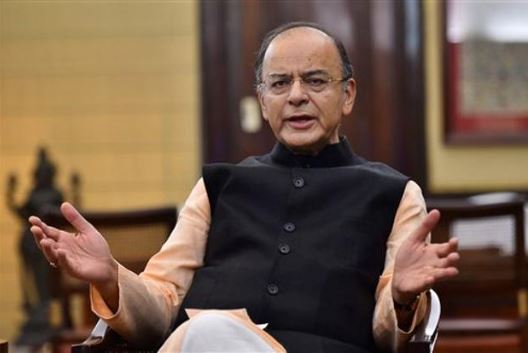
Former finance minister Arun Jaitley breathed his last on August 24, 2019. He was 66. Jaitley had been undergoing treatment at the AIIMS for several weeks. In the Vajpayee government (1998–2004), he held the cabinet portfolios of Finance, Corporate Affairs, Commerce and Industry and Law and Justice. Since 1991, he has been a member of the national executive of BJP and became the spokesperson of the saffron party during the period preceding the 1999 Lok Sabha election. From 2009 to 2014 he served as the Leader of the Opposition in the Rajya Sabha. He is also a senior advocate in the Supreme Court. Since 1987, he has been practicing law before the Supreme Court of India and several High Courts in the country. Early life: In 1973, Arun Jaitley graduated with a honours degree in commerce, BCom from Shri Ram College of Commerce, New Delhi. In 1977, he passed his LLB degree from the Faculty of Law, University of Delhi. At the Delhi University, Jaitley was an Akhil Bharatiya Vidyarthi Parishad (ABVP) student leader and in 1974, rose to be the President of the Students Union of Delhi University. He was under preventive detention for a period of 19 months during the period of proclamation of Internal Emergency (1975–77). After getting out of jail, he joined the Jan Sangh.
Read More
Finance Minister Jaitley said the decisions on changing the tax rates were taken on the recommendations of the fitment committee and the changes will come into force from Jan 25.

This is part of the customary pre-Budget consultation which the Union Finance Minister holds with his state peers.

While what comes out of Arun Jaitley’s briefcase remains suspense till February 1, here is what the common man expects from the upcoming budget.

FM Arun Jaitley also said the honest tax payer are forced to pay higher taxes due to tax evaders, and once the tax payer base expands the tax rate can come down.

The Narendra Modi government will present its last full budget on February 1 – the first after the implementation of the Goods and Services Tax (GST).

The Agriculture Ministry said in a statement here that it has held a quick deliberation on the growth rate for the sector to strategize on ensuring that 2017-18 sees a much higher growth rate.

The government's priority is to ensure the gains reach the farmers and the growth is visible even in the farm sector, said Arun Jaitley.

PM Modi will interact with leading economists and sectoral experts today to deliberate on economic policy roadmap for promoting growth and employment.

In the next Budget to be unveiled on February 1, the government could lower tax rate by 10 per cent on income between 5-10 lakh, levy 20 per cent rate for income between Rs 10-20 lakh and 30 per cent for income beyond Rs 20 lakh.

In a Facebook post, Jaitley said the conventional practice of funding the political system was to take donations as well as undertake expenditures in cash.

Arun Jaitley said the government's Rs 2.12 lakh crore recapitalisation plan was to keep banks in good health, which was "extremely" important for the economy.

Till 2016, Budget was presented on the last working day of February by the Finance Minister. However, it was later decided to advance the date to February 1 so that it could be materialised before the commencement of new financial year from April 1.

On December 28, the Bill was passed by the Lok Sabha. The legislation, which has to be cleared by the Rajya Sabha, criminalises instant divorce with three years of imprisonment for Muslim husbands.

Jaitley said that it was reckless lending by banks during the boom years in the previous government that had led to accumulation of such huge NPAs in the banking system.

Amid a demand by opposition parties that the bill, which criminalises instant talaq by Muslim men, be sent to a select committee, Jaitley said a debate over the bill was a must.

The Congress and other parties refused to relent and appeared adamant on their demand of referring the Bill to a Select Committee for detailed consideration. As a result, the Chair had to adjourn the business of the House till tomorrow.

In the last 70 years of independence, political parties had been taking donations from corporates and individuals, and most of the money was unaccounted.

Finance Minister Arun Jaitley today came out with contours of new 'electoral bonds' that can be bought from specified branches of SBI and used to donate money to political parties.

Bitcoins or such crypto-currencies are not legal tender and those indulging in such transactions are doing it at their own risk, Finance Minister Arun Jaitley said today.

Arun Jaitley said that cooperative banks function like any other commercial bank and the principle of mutuality, which was central to granting exemption, did not apply "because their area of operations extends even to non-members".
Top News
Trending News
Latest News